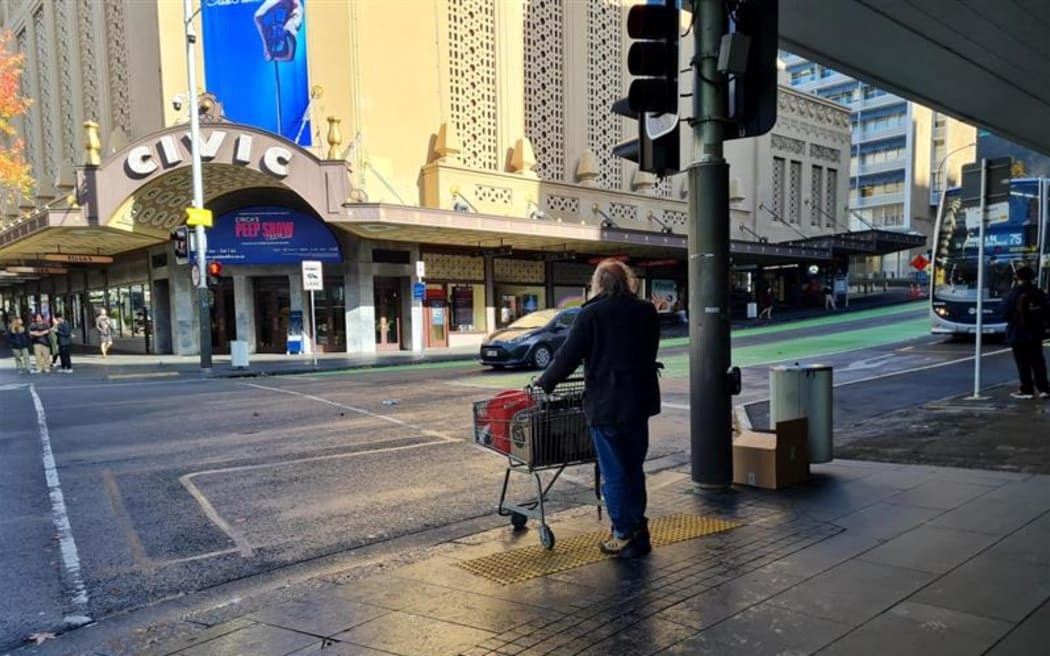Top Stories
Government Considers Measures to Address Homelessness in Auckland

Government ministers in New Zealand are exploring strategies to address homelessness in Auckland’s city centre, although specific proposals have yet to be defined. The discussions have sparked concern among opposition parties and housing advocates, who argue that any measures aimed at relocating homeless individuals may simply shift the issue rather than resolve it.
During a session in Parliament, Prime Minister Christopher Luxon clarified that there had been “no Cabinet decisions or discussion” regarding a potential ban on rough sleeping in Auckland’s Central Business District (CBD). However, he later indicated that the government is engaging with various stakeholders to enhance conditions in the area, mentioning that “move-on orders” are among the considerations.
Justice Minister Paul Goldsmith emphasized the need for police to have the necessary tools to manage public order effectively. “It’s blindingly obvious to everybody that the CBD… has been characterised by disorder and real concern around public safety,” he stated. Goldsmith also acknowledged that they are open to new suggestions regarding the issue.
Proposed legislation from National MP Ryan Hamilton aims to empower police to direct individuals or groups to vacate certain areas if their presence is deemed distressing or disruptive. While this bill remains in the parliamentary ballot, Police Minister Mark Mitchell has expressed support for providing law enforcement with additional means to manage public spaces. He clarified that the intent is not merely to displace vulnerable individuals but to ensure they are relocated to safe environments.
Housing Minister Chris Bishop confirmed that no formal legislation is currently being prepared but stated that multiple options are under review. He expressed a commitment to improving the environment in Auckland’s CBD, noting a “significant investment” aimed at providing an additional 300 Housing First places for those experiencing homelessness. Despite this, Bishop acknowledged that only a few units have become available since the announcement in September.
The conversation around potential measures has not been uniform among ministers. Deputy Prime Minister David Seymour expressed surprise at the discussions, stating he had not been involved in talks regarding a ban on rough sleeping. He questioned the practicality of such a ban, suggesting that it would not address the root causes of homelessness. “If you ban homelessness, where do people actually go?” Seymour asked, advocating instead for a focus on building homes and collaborating with community housing providers.
Opposition leaders are voicing strong objections to the government’s approach. Labour leader Chris Hipkins argued that criminalizing homelessness in the CBD would not tackle the fundamental issues. “They might not be in the CBD anymore. They might be outside someone’s house in the suburbs. That doesn’t make them any less homeless,” he explained. Hipkins called for a focus on providing shelter and addressing underlying issues such as mental health, addiction, and unemployment.
Green Party co-leader and Auckland Central MP Chloë Swarbrick announced plans to meet with social service providers to address their concerns. She criticized the government’s actions for exacerbating the homelessness crisis, citing reduced access to emergency housing and wraparound support services. Swarbrick warned that similar “move-on” legislation in other regions has led to increased criminal justice involvement for those affected.
Housing First Auckland programme manager Rami Alrudaini condemned any enforcement-based approach to homelessness as ineffective. He asserted that providing proven programmes that offer housing, health, and support services is the most effective way to tackle homelessness. Alrudaini expressed optimism about constructive discussions with government officials, emphasizing the need for immediate and safe shelter options, as well as expanded mental health and addiction services.
Auckland City Missioner Helen Robinson echoed these sentiments, stating that enforcement measures would be “totally and utterly ineffective.” She highlighted the humanity of those experiencing homelessness, arguing that enforcement would only delay or relocate individuals without addressing their needs. “The answer here is more homes and more support,” Robinson asserted.
The government’s deliberations on addressing homelessness in Auckland reflect a complex challenge that requires a multifaceted approach, balancing public safety concerns with the need for compassionate solutions. As discussions continue, the focus remains on finding viable resolutions that prioritize the well-being of all Auckland residents.
-

 World3 months ago
World3 months agoTest Your Knowledge: Take the Herald’s Afternoon Quiz Today
-

 Sports3 months ago
Sports3 months agoPM Faces Backlash from Fans During Netball Trophy Ceremony
-

 Lifestyle3 months ago
Lifestyle3 months agoDunedin Designers Win Top Award at Hokonui Fashion Event
-

 Sports3 months ago
Sports3 months agoLiam Lawson Launches New Era for Racing Bulls with Strong Start
-

 Lifestyle3 months ago
Lifestyle3 months agoDisney Fan Reveals Dress Code Tips for Park Visitors
-

 Health3 months ago
Health3 months agoWalking Faster Offers Major Health Benefits for Older Adults
-

 World3 months ago
World3 months agoCoalition Forms to Preserve Māori Wards in Hawke’s Bay
-

 Politics3 months ago
Politics3 months agoScots Rally with Humor and Music to Protest Trump’s Visit
-

 Top Stories3 months ago
Top Stories3 months agoUK and India Finalize Trade Deal to Boost Economic Ties
-

 Entertainment3 months ago
Entertainment3 months agoExperience the Excitement of ‘Chief of War’ in Oʻahu
-

 World3 months ago
World3 months agoHuntly Begins Water Pipe Flushing to Resolve Brown Water Issue
-

 Science3 months ago
Science3 months agoNew Interactive Map Reveals Wairarapa Valley’s Geological Secrets









